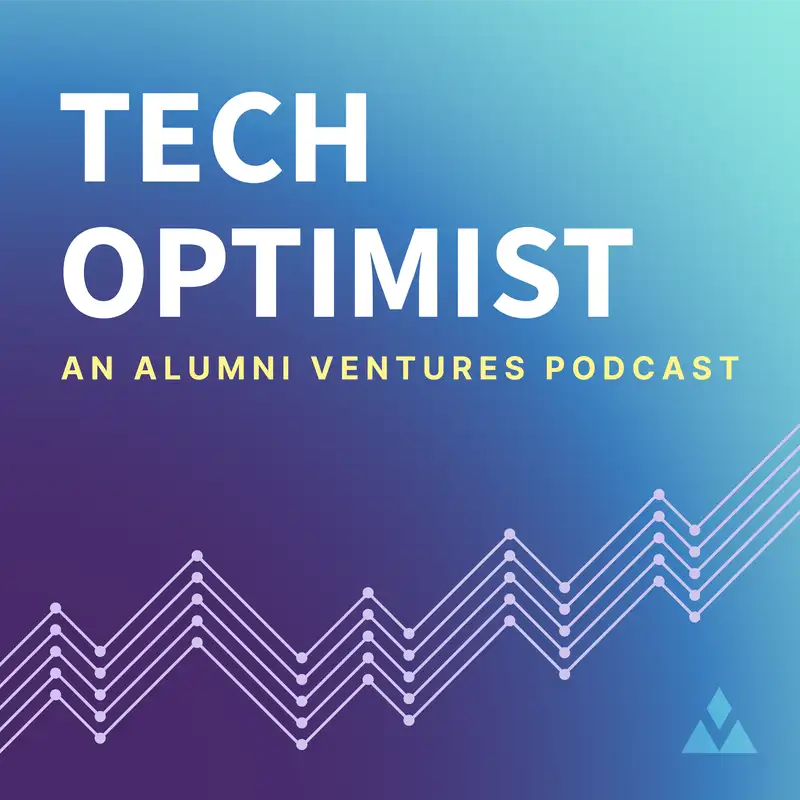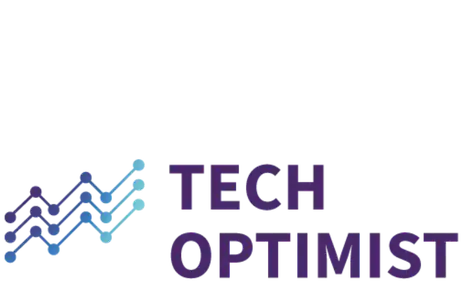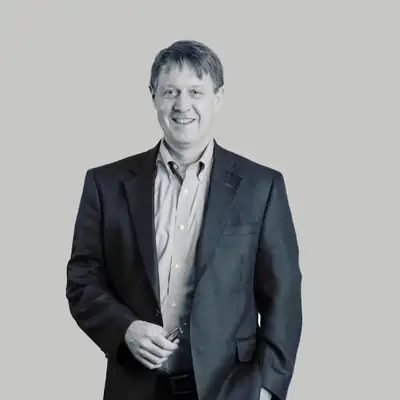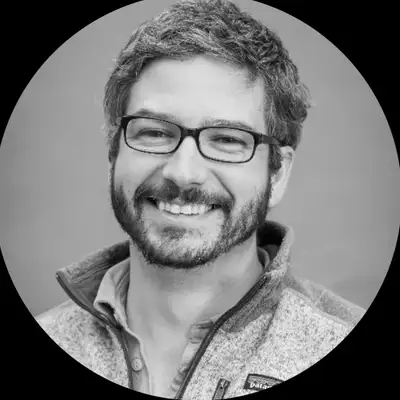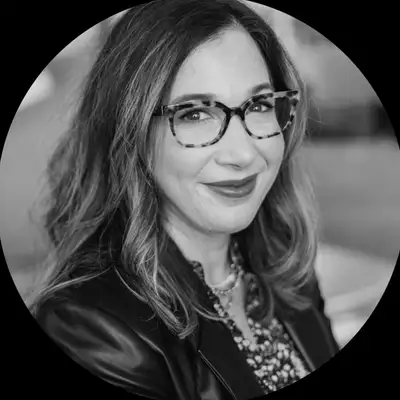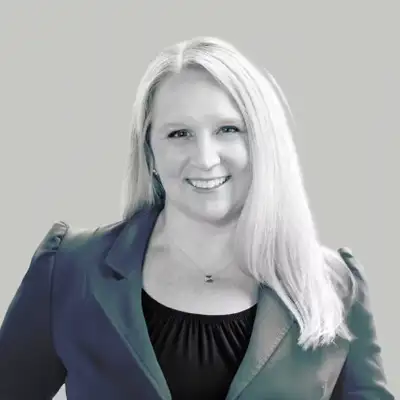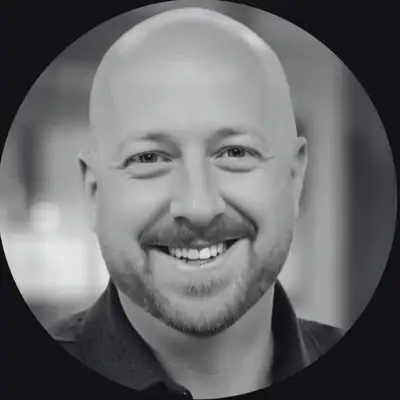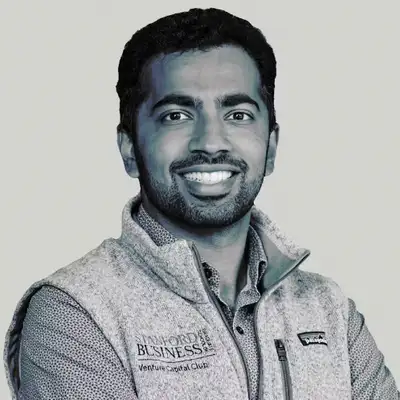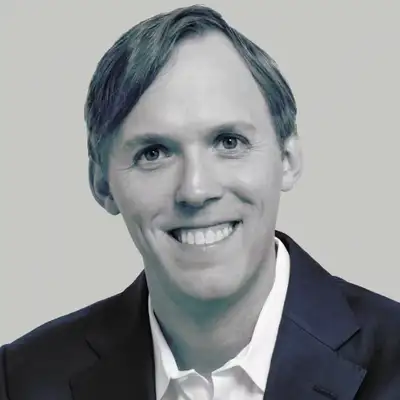#3 - Divorcing Divorce Lawyers
Speaker 1 (00:00:02):
In a world captivated by criticism and negative clickbait headlines, it's easy to overlook the scope and power of technologies propelling us forward. At Tech Optimist, we delve into the vibrant intersection of technology and entrepreneurship, shining a light on innovators who are building a better future. As members of the most active venture capital firm in the United States, our unique vantage point offers us insights into the real world impact of technology. Join us as we explore, celebrate, and contribute to the stories of those creating tomorrow.
Mike Collins (00:00:49):
Welcome to episode three of the Tech Optimist podcast. I'm Mike Collins. I'm the CEO of Alumni Ventures. AV is one of the most active venture capital firms in the world, and in this podcast we try to talk about the intersection of entrepreneurship, VC, and great new technologies. Enjoy the show. We have three blocks for you today. In block one, Pete Mathias interviews Brian Mengwasser. He's the co-founder and CEO of Edgescale AI. Their conversation talks about advancements in cloud infrastructure and covers a variety of important topics. In block two, I have my weekly conversation with Naren, talking about three things on the minds of entrepreneurs and VCs. In block three, I have a conversation with Erin Levine, one of our portfolio company CEOs, who's the founder and CEO of a company called Hello Divorce. I hope you enjoy the show today. As a reminder, the Tech Optimist podcast is for informational purposes only. It is not personalized financial advice and it is not an offer to buy or sell securities for additional important details, please see the text description accompanying this episode. Okay, let's get into block one with Pete and Brian.
Pete Mathias (00:02:15):
Hello everyone. Welcome to our series on great Founders industries and technologies that are taking place here in the US and the world. I am thrilled that today we have on board Brian Mengwasser. He is the CEO and the co-founder of Edgescale AI, and he's one of the brightest minds out there, period, in cloud infrastructure. So, Brian, thank you so much for being with us today.
Brian Mengwasser (00:02:47):
Thanks, Pete. Thanks for inviting me. Great to be here with you.
Pete Mathias (00:02:50):
Okay, so you are in the mile high. You are in Denver. We're all hearing all about it. Denver is the place to be if you are building startups in certain areas. So, tell us about those certain areas. Tell us what's going on in Denver.
Brian Mengwasser (00:03:10):
Yeah, Denver is an awesome place, not the least of which because we have the mountains, they've always been there. I can give you the snow report, but no, there's a lot of activity here. It seems like every couple of quarters, the amount of startups and interesting people are doubling. And I think especially, I mean there's always been a presence in critical industry, telecommunications, aerospace defense. But I think probably the thing that stands out to me the most is that just amazing diversity. Everyone's got an awesome idea and it's great to chat about it and explore how we can make an impact with them.
Pete Mathias (00:03:52):
Awesome ideas. Let's get to yours. So, Brian's at the cocktail party and he says, hey, I am building a company in infrastructure. Most people might say, hey, sounds a little bit sleepy, sounds a little bit boring. Why should we be caring at all about infrastructure?
Brian Mengwasser (00:04:14):
Yeah, so Edgescale AI is about bringing AI into the real world to have an impact on our daily lives. We have a lot of great infrastructure, especially here in the US, cloud technologies, advanced networks. Edgescale is about combining those, simplifying and abstracting so that you can bring AI into everyday applications. There's a lot that needs to go on in order to make new technologies practical. So, just like electric vehicles need charging stations for it to really be a practical solution, AI applications need Edgescale.
Pete Mathias (00:04:53):
So, let's get into a little bit more. You said AI needs to come to the masses. Most all of us are dabbling in Chat GPT, there's plenty of penetration of AI at this point of industry, but Edgescale you're talking about a certain type of industry, an overlooked group. Tell us a little bit more about the kinds of companies, the kinds of businesses that haven't quite cracked into AI that you're focused on.
Brian Mengwasser (00:05:25):
So, for me, the biggest impact of AI is going to be in our own productivity, frontline workers, autonomous systems. How can we use AI to help us do our jobs and be more productive? Now, as you said, I think a lot of us can easily see how AI is going to help us with the chat bot for something like e-commerce. But if you're talking about a factory, you're talking about a hospital, you actually need to empower the AI with access to critical, sensitive, potentially huge volumes of information that only really exist there. That's why we go to these places because we need to interact with physical systems and we need information. It's the same with AI. So, as long as AI is somehow distant living in a cloud somewhere, it's really not going to have the impact that we want. And so for us, we're focused on the concept of bringing together disparate pieces of compute of connectivity so that we can actually bring that AI to where the decisions are being made and where the impact will be the greatest.
Pete Mathias (00:06:30):
So, it sounds like you're building an AWS that that is tailored to the overlooked hospital or the factory floor. Is that fair?
Brian Mengwasser (00:06:44):
Yeah, and I would say we're building what McKinsey has called a super cloud, which is taking the best of AWS, of GCP, of Azure, and even of local data centers. There's probably data centers just a few miles away from where most of us are living, but we don't know that because it's not really set up like a cloud. So, an analogy that we like to use is something more like a Cloudflare or a Twilio. It's a capability that can use compute and connectivity from many different providers, actually, the more, the better, and then it becomes a really simple and abstract platform to say, I need to send a text message to some of my consumers or one of my patients, or I want to check on the status of what's happening inside of my industrial process.
(00:07:32):
You can use a text message system like that. We're building the same thing for AI so that you can distribute it. It can be easy to access the kind of information that it needs in order to be helpful for us, and it's simple to use rather than have to point to one or many different nodes. You can just say this is actually more like a fabric. That's where AI will come to thrive closer to the edge.
Pete Mathias (00:08:00):
So, tell us why can't an AWS, why can't an Azure be that fabric?
Brian Mengwasser (00:08:08):
Yeah, so it's really a different animal. I have a theory about a dipole in AI, which is obviously we see foundation models coming now that are requiring huge amounts of compute. You really need to teach a new skill to AI in a large data center, and that's what these large providers are really good at, massive scale, hyper scale is what it's called. But what's interesting is that the other end of that is when you try to take those skills and have a real impact to let's say optimize what's happening in one machine amongst thousands of machines in a factory, you need the other end of the dipole, which is about distributing some of that intelligence about tailored systems to run inference and to predict actions and then to actually take actions and learn from that in real time. And so this is the wave of the future that we see. It's natural that on one end it makes sense that you have centralized players that have enormous capabilities. And then on the other end is where we play bringing that AI intelligence to the world.
Pete Mathias (00:09:22):
Brian, you've been a builder in infrastructure, not only here in the United States, but across the world. You spent a lot of time in Europe, for example. Tell us where the United States sits in the spectrum of competency in infrastructure.
Brian Mengwasser (00:09:43):
Yeah, so as you said, I've spent time in cellular networking in distributed systems and data and AI in satellites, and I've gotten a good prospectus on this a bit. And I would say we're both ahead and behind. So, when I think about what drives technology forward and why the US is ahead in many ways it's because of what we think of as infrastructure. Whether you want to go back to roads or the earliest infrastructure of the internet, cellular, which spawned the smartphone generation. We are a leader in cloud. All the cloud major cloud providers started here and they're going internationally as well now. But when you talk about density of compute, that's been set up for ease of use in the SaaS ecosystem, the US is really ahead. But it turns out that that's not enough in the AI era because that's a centralized model that assumes that you can get all of your data to the cloud, which doesn't really work.
(00:10:55):
As I said, in these cases where you're trying to make near real time decisions in a factory or a hospital, actually the connectivity infrastructure starts to break down. And this is where in a lot of ways we were falling behind, because we were originally ahead. So, we built some of the earliest communication infrastructure for the internet and for smartphones, and that's a nice baseline, but in other parts of the world, they're starting that from scratch. So, they're able to build it in a way that's much more scalable and I think is well suited for AI. So, now we're seeing a bit of a land grab actually of who can build that kind of distributed compute because you can't bring all your data to one place who can build that kind of scalable, secure infrastructure that's going to be necessary for doing more than making phone calls and watching YouTube videos.
(00:11:51):
This is two-way communications. Imagine at massive scale between AI and systems and in the US we are falling behind. Just to put some numbers to it, over the past several years we've seen maybe a few hundred of these types of distributed computer networks built in the western ecosystem and in China, Huawei, as an example, has built thousands in the past year or two alone. So, we have work to do and that's one of the main missions for Edgescale as well, is to be smart about how we do that. We don't think we have to build everything from scratch, but we do need to stitch more capabilities together to extend our leadership and actually get smarter about bringing AI to the data rather than the data to AI.
Pete Mathias (00:12:38):
Last question, be the optimist. 10 years down the road we double down on infrastructure, Edgescale as a pioneer in that space, what does the world look like? You talked about how investments in cellular unlocked the smartphone era. What does infrastructure investing in cloud unlock?
Brian Mengwasser (00:13:07):
Yeah, I like to think of as a technologist and a futurist, I like to think of what are the gains that we're going after with any form of technology? What does good technology look like? And for me, that's all about, a mature technology is one that's invisible. It's helping us achieve our overall gains. It's helping us be happier. It's helping us stay connected with people that matter to us. It's helping our economy be more productive, so less toil, more inspiration for all of us.
(00:13:49):
I like to think that AI is an enormous leap forward in that regard, but it's pretty immature. There's a lot of work to do to get it there, to be something like a smartphone that allows us to stay in sort of instant communication with our family or a calculator that helps us do our job. So, we've got some work to do to simplify and automate the process so that when we take a step back 10 years from now, let's say we're all living in a much more healthy society, one where we can be focused on what matters to us are our core values and one that's fundamentally more productive so that we can achieve things faster as a species.
Pete Mathias (00:14:36):
Brian, thank you for building this strategic technology. Thank you for joining our series on great founders building and industries and technologies that are critical for the world. Appreciate you sharing time with us today.
Brian Mengwasser (00:14:52):
Thanks, Pete. It's a pleasure as always, and really excited to see how things evolve over the next 10 years. It's going to be a really exciting chapter for us.
Pete Mathias (00:15:01):
Hey everyone. I want to take a quick break and share more about Alumni Ventures and our U.S. Strategic Tech Fund. AV offers smart, simple and accessible venture portfolios for individual investors. We build diversified portfolios with low minimums, co-investing alongside renowned lead investors. It's a strategy that has mobilized over 1.3 billion from our community of now more than 10,000 individual investors. With our US Strategic Tech Fund, you have the opportunity to invest in technologies that are critical in bolstering US national security and economic prosperity. We prioritize three key areas, Homeland Security, Cyber AI and digital strategy, and lastly, space innovation. By investing in companies that are innovating in these areas, our goal is to enhance resilience in emerging threats and to support early-stage ventures that will encourage sustained growth and technological progress in the United States. If you'd like to learn more, click the link below or visit av.vc. Okay, back to the presentation.
Mike Collins (00:16:24):
In block two, I'm having my conversation with Naren. We cover the question, is compute the new oil? We talk about how AI could be shaping content and advertising in ways we can't even imagine, and the exciting new FDA approval for some CRISPR technology, which is addressing sickle cell disease. All right, let's hop right in. Good to see you again.
Naren Ramaswamy (00:16:54):
Yeah, good to see you, Mike. The pace of technology just week by week is overwhelming. I was thinking about top three things on my mind. I feel like I could make a list of five or 10, but maybe the first thing I'd love to pick your brain on and happy to share my thoughts as well is Sam Altman a couple of weeks ago in his interview with Lex Friedman mentioned that compute is the new oil. And I've been thinking about that as I've been reading the news and looking at companies, and it's just when you think about that, obviously compute power is incredibly important now more than ever, Chat GPT has shown the potential. It costs six to 10 times more to run a chat GPT query compared to a Google search. So, the world demands that compute power in an instant. I'm curious about how you see that playing out with big tech companies like Google now announcing their new data center chip, they're joining Microsoft and Amazon and all three of them are vertically integrated in that way. Curious to see how you see that playing out.
Mike Collins (00:18:06):
Yeah, I mean, I think there's a couple of things, Naren, I think one is what he says is true, and I think there are implications for compute being the new oil that I think one thinks about from a world strategic perspective, there's that framing, which is the world, in previous periods of time it was oil, right? And wars are fought, lives have been lost, fighting for resources. And so I do think if you understand the importance of compute and chips which drive our world today and arguably will increasingly drive our world, I think there is a sovereign strategic perspective one needs to have. And again, you see that with the CHIPS act, but I think if you look at all of the big US-based tech companies from the big to the small, they're all thinking about building centers. And this is one reason Nvidia has gone where it has is it's like we are still on the part of the AI curve where more compute gives you much, much better results.
(00:19:41):
And so I think if we want these models and tools to do more things, more substantive tasks, we just have to throw more compute at it. One of AV's portfolio companies, Brock, made an announcement about their kind of cloud services. So, the chips are the means to the end, but it's all about running centers and compute as a service. And this is the AWS 2.0 model I think. So, I think it's just staggering the amount of resources and money and energy that is going to go into building this next generation of digital infrastructure, I think if you will, is just I think people have a hard time getting our heads around it. And you look at Nvidia, which is one of the major suppliers to these centers, their chips, etc, whatever, how can I make five times my money on a company with that kind of valuation, which is we're going to see our first $10 trillion company.
(00:21:17):
When I started out in the business, it was like, oh, billion dollar opportunity was career making. And then now who was the first trillion-dollar company was just a few years ago, and now it seems like we're on a geometric curve on some of these fronts. So, I just think we just all need to get our head around the scale and the strategic importance of this valuable new resource. I mean, I think there's a couple of things that we're definitely in a attention economy where people are spending their time is a key metric, and I think that was part of the Reddit story. And I think the other thing is who's got the compute? And I think it's one thing to have a great idea to do a startup in AI, but you're going to need access to data and you're going to need access to compute to bring that to the world. And so I just think it's a big deal.
Naren Ramaswamy (00:22:34):
Absolutely.
Mike Collins (00:22:35):
It's something that everybody's figuring out, talking about, getting their heads around.
Naren Ramaswamy (00:22:40):
And I'll even add to that, I think that as VCs when we have to think a few years out, so compute, there's a lot of attention going towards compute, a lot of dollars going towards that. But in addition to that memory, the data pipelines are also super important. So, we have a couple of portfolio companies creating those pathways. So, just having a large brain doesn't help. You still need the circulatory system. And you also need, we have a portfolio company called Frore Systems which deals with heat thermal issues in electronics, and that could also, you can't just have an overheating chip, that's going to be a fire hazard.
Mike Collins (00:23:22):
And we're not going to turn all of Iceland into a data center either, right? So, yeah, it's the classic picks and shovels too, right, is like you see this trend about the data centers, but there's a lot, there's wiring, there's heat management, there's energy, there's a whole bunch of stuff, and there are a lot of very wealthy people and very successful companies that are going to be putting together the less sexy parts of some of those things that are going to create enormous businesses because they do some facet of this trend. So, yeah, I mean sometimes you have to look beyond the headline in the one company to the second order and third order investing opportunities among these macro trends, but the major trend you have to be aware of. So, when you see the cool company that does heat management better, you recognize the scale of that kind of opportunity. For sure.
Naren Ramaswamy (00:24:32):
Yeah.
Mike Collins (00:24:33):
So, what else is on your mind this week, Naren? What other things are you hearing, talking, thinking about?
Naren Ramaswamy (00:24:41):
Well, I'm thinking, we talked a lot about the infrastructure layer. I'm really thinking also at the application layer, which for the past couple of years VCs have been saying, well, we're not sure we want to invest in the application layer because another chat GPT wrapper is not going to become a unicorn. There's thousand companies like that. But we're sort of getting to that point where now Google and Apple, for example, have both published research regarding screen AI, which means an AI model that can read, see your screen, understand what you're looking at, and in a secure way, in a personalized way.
(00:25:13):
So, just this idea of personalized content is a new paradigm. It used to be what you clicked on or how much time you spent on a certain picture or something like that. But this is the next level of that. And so I'm really curious to see what startups can emerge once that technology gets to the point where ads will become even more personalized and you might actually enjoy ads. Who would think about that? We started with television ads, 15 minutes of a show it was boring and you sort of changed your channel, but now what if you wanted it? You were looking forward to the ad while you were using your phone.
Mike Collins (00:25:55):
I mean, we all have had the anecdotal story of you're talking on the phone to your partner about, hey, it sure is cold up here in New Hampshire in the winter. Wouldn't it be nice to get somewhere like Aruba and then all of a sudden Alexa, you go home that night and Alexa says, oh, would you be interested in a cruise to the Caribbean that stops in Aruba, right? So, the next order of that I think is coming. I also think we're starting to see some real promise for natural language programming too, where you don't need to be a programmer to have an assistant that does what you and I would view as programming on our behalf. So, it's not only just customized things being fed to us, but having tools that allow us to say, I would really like this to happen. And in essence, some script and program is being done behind the curtain on your behalf, either as an individual or as a company or as a startup.
(00:27:31):
I think we're just starting to see inklings of some of those things starting to happen. I mean, it has been moving this way with programming, natural language, but I think again, where we are, where the ability to have software engineer agents at your behalf or a army of them if you're really, really talented. And so again, just an order of magnitude more efficient. So, it's one thing if you're just a regular person having some of this done for you behind the curtain one level, but also if you are a more technical person, being able to leverage yourself for 10 x effectiveness and efficiency I think is also coming. So, again, I think there'll be like a lot of things we've seen over the last decade, a power law outcome, which is if you're using these tools and you're good at them, you're going to differentiate yourself and capture a disproportionate part of the market either again, as an individual in your profession.
(00:28:52):
I don't see, again, the saying you don't lose your job to AI, you use your job to someone who does what you do, but uses AI really, really well. I think that is again, inevitable. And I think you're going to also see that in the entrepreneurial ecosystem. I think you're going to have, listen in most segments where there's venture investing, there's more than one player, and I think the market wins and the companies that figure out how to use AI to differentiate themselves and be more efficient, more effective are going to win the marketplace. So, yeah, I agree with you. I think this idea of AI empowerment and mass customization and amplification and leverage, I think against really, really exciting stuff going on in that space as well.
Naren Ramaswamy (00:29:55):
Yeah, it's going to be like the Instagram moment where thousands of people around the world or millions will become creators suddenly when this platform is given to them. And if English becomes the programming language of the world or could be even Korean that's translated to English instantaneously, I'm just thinking about suddenly you have a billion people that can build apps on demand and it's just the level of abstraction allows anybody to become a creator. We're going to see potentially a proliferation on the amount of startups and also the amount of bootstrapped businesses that emerge. And so we're definitely keeping our eyes peeled for that.
Mike Collins (00:30:32):
Yeah, I mean I think that's related to what again, I've seen over the last 15 years, which is the number of people and the amount of money necessary to achieve product market fit has declined pretty significantly over the last 10 years. And what used to take a team of 25 and $10 million can now be done with two people and a million dollars. And I agree with you. I think you're going to see more small teams achieve more with less money faster than any time in human existence. And I think that's exciting. And I think from our standpoint, we lean into being really early with really getting it at the pre-seed stage, but I think the amount of money these companies are going to have to raise will either go down a lot or their ambitions will get a lot bigger. Now, again, tying it back to our first conversation, which is if they can get the compute, so it's like I can see that that becomes as valuable a currency to found a startup.
(00:32:07):
You need a great idea, you need a great team and you need money. That was the traditional troika of success, and I think we may be adding and compute, so I need the right team chasing the right idea with the right amount of money and access to compute. I think that's going to be more the future paradigm. Hey, the other thing that, and I know this is I think eating the same drum a little bit, but I think it's just every week there also seems to be more good news about GLP-1 drugs. And again, we talked a few weeks ago about the Oprah moments and now we're seeing some early indications related to Parkinson's disease. There's a really small, very preliminary, but exciting data I think out of JAMA or some legit publication about an early study where it had really slowed the progression of symptoms from patients and really exciting.
(00:33:28):
We're also seeing, I believe I read that there had been approval now for indications with cardiovascular disease. Again, and I'll just speak anecdotally that there are now in my extended family, three new family members who have off and on in their life struggled with managing their weight that are starting to go on the drug. So, I've tried to make this point where it's AI and compute and attention economy, but I think people are underplaying because it's really been, and this is not the way our media is driven right now, which is looking for bad news all the time or risks or the terminator. There's just been so much good promising news related to this class of drugs. I just think it is really under-reported how profound this can be. Again, I have family members where this could be life-saving for them, that they're really on a trajectory for diabetes and heart disease and premature death because of their struggle with weight and let alone, if we can find variations of this that can impact other disease cases that I'm very excited about it.
(00:35:07):
I just can say, because one of the things I have seen over and over in my career and array is if you can get some early success to the point of hype, and that's kind of the classic cycle that you see a lot in technology. And I'll go back to dot-com, like the internet, the internet's going to change everything, and we had a bubble and a burst. But you know what, it was true, the internet changed everything, right? Because what does happen is in that period of excitement and a bubble, huge amounts of capital and huge amounts of talent go into it, and a lot of it is wasted and a lot of it is inefficient and goes away, but the overinvesting is what ... So, my hope is that we have a bit of a overinvestment in talent and money into this area because I think even if it's only 5% of it pans out, that 5% will materially impact the lives of hundreds of millions of people.
(00:36:28):
So, everybody views these hype bubble burst cycles is silly and wasteful, but you look back with the experience of hindsight. Yeah, there was for every stupid idea that got funded for every Stanford Business School team that chased the hype and started a business that went nowhere. I think from a society perspective, it's a good thing because the 5% that work move us all forward. And so I am a big believer in these foundational technologies and then really investing in the second and third order effects. But again, just every week I keep reading about really good things in the life sciences that I think sometimes get grounded out by some of the stuff going on with AI at the moment.
Naren Ramaswamy (00:37:38):
Absolutely. And CRISPR has been around and people have talked so much about the ethical considerations of CRISPR, but I feel like it wasn't covered much in the FDA has approved the first ever gene editing treatment using CRISPR for sickle cell disease, which affects a hundred thousand Americans, and that's a milestone achievement. The Congress has regulated clinical trials using CRISPR, but the fact that the FDA approved it, the Congress left it to the F FDA and say, "Hey, look, you take a look at these therapies going through the pipeline." The fact that the FDA has approved this, it actually opens the floodgates for using some of these technologies. Again, similar to AI, there are risks, but there can be huge positives here.
Mike Collins (00:38:26):
Yeah, I mean, it is a tough line to draw that I am, and I understand that I'm on one side of the equation of this, which is the role of regulation in the government to protect people. But as you point out that this is a disease that affects a lot of people in very profound ways, and the underlying science here is really powerful to do good. And so yes, it is very exciting to see when you can get something through the process that gets approved. I do think, again, it allows capital and talent to feel good about continuing to invest in CRISPR technologies that save lives and prolong healthy living and cure disease.
(00:39:31):
And so I think often we miss out on opportunities to improve lives cure disease, because we are so afraid to accept the fact that there is a cost-benefit analysis to be done, and one needs to do that very thoughtfully, but we need to continue to experiment and progress if we are going to save lives and cure people. And so yeah, thanks for pointing that out, Naren. It was a big deal, again, hugely under-reported it is going to impact many, many lives and hopefully encourage more scientists, more entrepreneurs, more capital to invest in more of these kinds of solutions because the world needs them for sure. And yeah, lots of good stuff. As you pointed out, Naren, it is hard to pick three things going on. You could have talked about three more things, but as always, enjoy the conversation and we'll do it again soon.
Naren Ramaswamy (00:40:52):
Yeah, thanks for the pattern matching and insights over the years. That's great for me to think about, calibrate my own models.
Mike Collins (00:41:01):
Yeah, when you're old, that's one thing you can offer. So, glad to help, my old man perspective.
Naren Ramaswamy (00:41:12):
Appreciate it. Well, we'll be in Manchester next week, Mike, so see you there.
Mike Collins (00:41:15):
I'll see you then.
Ludwig Schulze (00:41:16):
Just a brief interruption to tell you a bit about Alumni Ventures and our Doctors Innovate Fund. Alumni Ventures enables individuals to invest in startups shaping the future. We build diversified portfolios by co-investing alongside renowned lead investors. Today we serve over 10,000 investors who have invested more than $1.3 billion. With our Doctors Innovate Fund, you can invest in a portfolio of around 20 healthcare technology companies from transformative healthcare services to groundbreaking diagnostics. Our founders are paving the way for a healthier future. If you're curious about diversifying your portfolio and helping to drive the next wave of medical breakthroughs, click the link below or visit us at av.vc.
Mike Collins (00:42:05):
And here we are in block three. It's my conversation with Erin Levine, founder and CEO of Hello Divorce. Really interesting conversation. Hope you enjoy it. So, I'm here with Erin Levine, if I'm pronouncing that right?
Erin Levine (00:42:23):
That's right.
Mike Collins (00:42:26):
She's CEO of one of our portfolio companies. And listen, one of the things I love about my job is I go from hearing a pitch from five PhDs doing something obscure in health tech to somebody who's created a really relatable business. Erin, why don't you just tell us a little bit about your startup and the origin story behind it. Love to hear it.
Erin Levine (00:42:52):
Sure. Okay. Well, my name is Erin, as you said, and I'm a family law attorney. I practiced law for 15 years before I became the CEO and founder of justice technology company, Hello Divorce, where we offer a kinder, simpler, less stressful and much more affordable alternative to the lawyer up and fight traditional divorce that most of us think about when we think divorce experience. So, our platform combines digital tools and calculators that automate most of the legal and financial logistics that go into divorce. And there are a ton. And we combine that with empathetic support and expert advice on demand so that everybody has exactly what they need to reorganize their lives, their families, and thrive into their next chapter.
Mike Collins (00:43:59):
Interesting. So, where are you in the journey? This is pretty early stage company right, Erin.
Erin Levine (00:44:05):
Pretty early stage. Let's see. So, we believe that we found product market fit. We have expanded geographically and vertically. So, what I mean by that is that when it comes to divorce, every state has different laws, and in some cases, every county has different rules as well. And so we have had to take a very, very, very deliberate approach and expand into each county and each state one at a time to ensure that we are compliant with regulations and ensure that everybody will be successful when they use our product. And I don't mean successful as in yay, it's divorce. Fantastic. I mean, as in they can get divorced and feel good about their experience and feel hopeful and confident about their next chapter. Exactly. So, what I decided to do very early on was to focus both on expanding geographically, but also on expanding more into the life transition of divorce.
(00:45:21):
Because when we think of divorce, we think of legal, and I know that because I'm a lawyer, but for people who have actually experienced divorce or who have been touched by divorce, know that it's so much more than that. Everything changes in our life from how we parent our children to our health insurance policy to where we might live, even our morning rituals when we might start dating again, there's so much going on. And so we've taken an approach of as we expand geographically, also ensuring that our customers have what they need. And we learned very early on right after our pre-seed round in 2021 that about 88% of our customers were returning to the platform after they finished the legal process. And that was completely new for me. I had never experienced that as a lawyer. Nobody came back to me and said, hey, let's hang out.
(00:46:23):
Let's do some more stuff together. And what we found is exactly that people were looking for more of a life management platform, something to help them through this transition because it doesn't happen overnight. And we had built this trust over the three, six, sometimes nine-month process of divorce, and they needed more. And so where we are now is that we offer our full-service divorce legal product. So, that is not just a software-only experience for very simple divorces, but a mediator or lawyer or financial advisor assisted divorce as well to 60% of the country. And then we also have launched additional products and resources to help further into that transition. So, the most recent one, the one that we have launched since Alumni Ventures invested in our seed round is our three step home split solution. And what that's designed to do is to help people with the transition of what to do with their home equity when they're getting a divorce.
(00:47:48):
So, backing up a bit, about 65 to 70% of divorcing spouses own a home and 100% of divorcing homeowners have to figure out what to do with it. So, in the past it was, well, you can sell and split the equity, or you could, if one of you can afford it, you can refinance and purchase your spouse's interest, which is very, very challenging to do, especially in today's market with high interest rates. But just in general, it's hard to do. So, we built a product that helps people figure out how much equity is in their home, how much each spouse is entitled to and what their various options are. It could be anything from a refi or a sale, but it might also be something more creative like a sale lease back or a home equity investment.
(00:48:55):
And then they meet with a divorced real estate strategist to help them understand whether they can afford it in the short term and whether it helps them with their long-term financial goals. And ultimately, once a solution is reached, we introduce them to one of our partners and that partner, a lender or a broker, helps execute the transaction and in return, Hello Divorce receives a commission. So, nothing out of pocket for the consumer, a great transaction for the lender. And then of course, we end up receiving, actually doubling our existing LTB. So, it's really exciting. So, now you asked where are we in our journey? We are getting ready to head out for our series A.
Mike Collins (00:49:54):
Congratulations. Yeah, I want to just dig a little deeper into this topic, because I think it's always an interesting one, which is the combination of technology with a human wrapper, and especially we're entering this era of AI now, I think it's just, it's on the minds of a lot of founders and a lot of CEOs is what is the role of technology and hands off, and then what is the role of a human being in this process? So, can you just talk about that a little more? How are you thinking about both the high-tech and high touch nature of what you're trying to provide?
Erin Levine (00:50:34):
Yeah, I think that's an excellent question. It's a really exciting time. I mean, I'm sure all founders come on here and tell you that, but for me, it's an exceptionally exciting time, not just because what we're seeing with AI, which has just boosted our technology, our productivity internally so much and cut down on expense. But what we can now do or what we are aiming to do for our customers, but also just with the tailwinds with what we're seeing in the market with divorce, which we can get to in a minute. So, I think one of the things I tell investors when they talk to Hello Divorce is that if you are looking for a company that will have zero connection to humans that will be completely software driven as it relates to divorce, then I am not the founder for you. Because-
Mike Collins (00:51:37):
If you want to divorce ATM, this is not the place for you.
Erin Levine (00:51:42):
I do believe. And that being said, 80% of people can't afford a lawyer. That is a fact. 80% of people can't afford a divorce lawyer. One of the reasons why I founded this company, and there is absolutely no way that even if every single divorce lawyer in this country spent a hundred percent of their time doing pro bono services, that there would be even enough to go around. So, I don't necessarily think that that human needs to be a lawyer. In fact, I think that it usually does a disservice to people when we have that human support come from a lawyer, because that's generally not what people need. What the technology can do is the math, what the technology can do is make the information transparent.
(00:52:37):
What the technology can do is help to bring down the level of fear and overwhelm and shame that 99% of people come into with divorce, which is so important because when you have that, it is very hard to make rational healthy decisions that don't lead to something like war or battle in court, especially when you have a system that wants to ramp all of that out.
(00:53:04):
But what we haven't figured out yet is a way for technology to truly and meaningfully help with the vast majority of people with the conflict resolution piece. And there are a lot of great, we can think of a million right here, a lot of great software options out there that do help with customer service and help in many other ways. And we've tested them and tried them, and we will continue to do the same. But for the vast majority of people, they do want some form of human connection throughout the divorce. And about 10 to 15% of them want some form of tech enabled mediation to help them resolve conflict or broker a deal during one of life's most stressful transitions.
Mike Collins (00:54:09):
Bigger picture. Taking a step back, what's the landscape? What are divorce trends? What's going on in your space that you're seeing that you can maybe provide our listeners just some information about what's going on in a bigger way?
Erin Levine (00:54:29):
So, they're calling this the great divorce era, which has my husband totally freaked out. I told him I've been a divorce lawyer for nearly 20 years. I own Hello Divorce, I'm the CEO at least, and I have divorce books on my bedside table. And that has never freaked you out, but now that the media is calling it the divorce era, you're somehow stressed. It doesn't mean that everyone's running out and getting a divorce. What we're seeing or what the media is seeing and what we're seeing too, because that's the fun part about being at Hello Divorce. As a divorce lawyer, I saw 20, 30, even when I had 10 lawyers at my firm, maybe a hundred cases a year, but at Hello Divorce, I get to see thousands of people on my platform. So, what we're seeing is this trend of, well, first of all, gray divorces.
(00:55:20):
So, divorces for boomers, the rate has doubled. And we're also seeing that millennials are divorcing at a younger age. So, whereas Gen Xers and boomers tend to try to save their marriage after they know it's in trouble for 3, 4, 5, sometimes eight years, millennials are getting to that decision a lot quicker. It doesn't mean they're not trying, it doesn't mean they're not going to therapy. But what it's starting to signify is that people don't need some big huge event like infidelity or domestic violence to feel like it's time for them to move on.
(00:56:09):
And we're not just seeing that trend with the way people respond to us on Instagram or in our emails or how they negotiate when they work on their divorce agreement, but we're seeing it with Gallup polls. We just saw, with Pew Research, we saw 81% of Americans now say that essentially a good divorce is better than a bad marriage. That is a huge difference from when even I started thinking about Hello divorce back in 2018, and I launched and would receive hate mail daily from people that said, for whatever reason, that if I made divorce easier, that somehow people would run out and everybody would get divorced.
Mike Collins (00:56:58):
Yeah. Are you seeing, just from a lots of emotions always, I'm sure in divorces, but are you seeing an interest in less battles, more battles is the same as 20 years ago? How are people viewing just trying to get through this? Are you seeing any changes there?
Erin Levine (00:57:28):
Yeah, I think it really depends on where people live. So, I think the word is out in big cities that if you lawyer up with the most aggressive attorney in town, and most people think all lawyers are aggressive, then you're going to spend the average $20,000 per person and you will likely end up going to trial. So, I think people are looking for a easier, kinder way to do divorce. It doesn't mean that there won't be conflict. There will always be conflict. Most people who come to our site now are starting off without an agreement and hoping that they can get to one versus when we first launched, we only got people who had very, very uncontested amicable divorces, most of whom had been separated for years before they even started the divorce with us.
(00:58:27):
So, that is changing. However, I do think that people still, for the most part, and hoping your audience can help us get the word out there, think that to get divorced means I need a lawyer. We have lawyers available. And I think that's one reason why people like our platform and what sets us apart, but ultimately only about six to 10% of our customers end up taking us up on that offer.
Mike Collins (00:59:00):
So, when we do these segments, we always, what's your ask of our audience? Is there something that they can help with?
Erin Levine (00:59:13):
Yeah, I always have asks, can I have a couple?
Mike Collins (00:59:16):
Sure. Absolutely.
Erin Levine (00:59:20):
Okay. Let's see. So, one thing that I've been looking for and have been having a really hard time with, and it could be because a similar model to lawyers is meeting with a PR strategist who's really excellent, who of course I would pay, but not yet ready to retain on a monthly basis. So, more like a coach on a limited scope basis. I'm looking for someone who's great there that I could be connected with. This is my pie in the sky ask, which would be an introduction to, or somebody either Melinda Gates or somebody at Pivotal Ventures or somebody through Mackenzie Scott's team, because both understand divorce, both are making investments into companies that really are making real changes for women and their families. And I think by helping people opt out of a messy legal system and focus on their future that they're creating as opposed to getting stuck in the past, not only sets their kids and their lives up for something better, but we're also really tackling that huge financial inequality gap between men and women post divorce. And so I'd love to be able to get in front of them.
Mike Collins (01:00:54):
Great. No, I think we'll be able to help you with both of those, actually. So, that's good. And yeah, final question, which is just personally, any productivity hacks or things that you've learned in this journey that you have found that have just really helped you be more successful or manage life a little bit better to share?
Erin Levine (01:01:19):
There's a few things that I do pretty religiously. One is I always set three alarms during the day at random times, and I stop doing whatever I'm doing right then or right after whatever meeting or call I'm in. And I take three monstrous breaths, just three really, really big breaths. And it just grounds me and keeps me going.
Mike Collins (01:01:50):
I love that. That's fantastic. And it's the fact that it's random is cool, for sure.
Erin Levine (01:01:58):
Random is important to me. The second thing I do is you have to know your triggers. And most of us that are in the startup world or the entrepreneurial world, have them, right? Most of us in life have them. We're all amateurs, but especially if we're driven as hard as we're driven. And so there's a couple things for me, and hopefully somebody will relate to this. So, one is I always check myself to ask, am I making a decision from a place of fear? I think we do that a lot with everything. I find myself doing it with parenting all the time.
(01:02:37):
And so am I making this decision out of a place of fear, or am I making it because I truly believe it's what's right for me or my company? And so that's one thing. And then of course, I also find that my brain is like my desktop. And so every time something comes in it that I need to know, I take action if I can do it now, and if not, I schedule it, I get it out there, but I cannot keep it on my brain because if I do, it just ends up taking over and I can't focus on anything. So, hopefully that's helpful.
Mike Collins (01:03:25):
No, this is great. Anything for me?
Erin Levine (01:03:31):
I'm sure people have asked you this, but is this your dream job? Have you found your dream job?
Mike Collins (01:03:37):
Yeah, that's a great question. Yeah, I really have. I mean, I'm a big believer in this perspective that you try to find this intersection between what you like and what you're good at and what can help the world. And so for me, that was a fair journey. I mean, this company, Alumni Ventures, I started I think at the age 49 or something. And it really took that long to really find those things being in perfect harmony. And so I just love every day. And the journey to get here was not, and this is one of the things with my kids now are in their twenties, which is I think a lot of, there's a lot of perception or expectations of young people that have to have everything all figured out at age 23 or something like that. And I have just learned over time that it's like the good stuff in life takes a long time and becoming an entrepreneur is even within a company, it's trial and error and it's grit and it's evolving and just getting 1% better every day.
(01:05:21):
But even over the course of a career, one job led to another job led to another opportunity and a failure and a setback, but then a win and just, yeah, it's been a journey. But yeah, Erin, this is the last job I ever want to have and I want to do it as long as I can do it, because I get to meet amazing people like you. I get to learn stuff every day. I'm pretty good at it. I find it really rewarding, and I get to be both an entrepreneur and a venture capitalist. So, yeah, 30 year overnight success, but I'm happy. Excellent. Well, thanks for your time. It was great hearing your story, the story of your company. Looking forward to the A round and just keep doing what you're doing Erin.
Erin Levine (01:06:17):
Thank you. Thanks so much for having me.
Mike Collins (01:06:20):
All right, have a good one. Bye.
Erin Levine (01:06:21):
Okay.
Laura Rippy (01:06:23):
Hey everyone. I'd love to take a moment to tell you a bit about Alumni Ventures and our Women's Funds. AV offers the opportunity for individuals to invest in startups shaping the future. We build intentionally diversified portfolios co-investing alongside established lead venture investors. Today we serve over 10,000 individual investors who have invested over $1.3 billion. With our Alumni Ventures Women's Fund, you'll have the opportunity to help us invest in fiery female founders. We're starting from a position of strength. AV has already invested in over 350 startups founded, co-founded or led by women. We see the Women's Fund as a great opportunity. PitchBook reports female-led startups are more capital efficient and exit faster, yet only receive 15% of all venture capital dollars. Join us to invest in female-led startups, innovating in sectors like cyber security, machine learning, space, FemTech, AI, and robotics. Join us in the Alumni Ventures Women's Fund to put your investing capital to back a diversified portfolio of female led high velocity startups as they change the world. If you'd like to learn more, visit us at av.vc/funds/womens.
Mike Collins (01:07:50):
So, that's this episode of the Tech Optimist Podcast. Want to thank you for listening. Please subscribe, pass this along to your friends. We'll see you next week.
Speaker 1 (01:08:05):
Thanks again for tuning into the Tech Optimist. If you enjoyed this episode, we'd really appreciate it if you'd give us a rating on whichever podcast app you're using and to subscribe to keep up on the weekly episodes. The Tech Optimist welcomes any questions, comments, or segment suggestions. So, please email us at info@techoptimist.vc with any of those and be sure to visit our website at av.vc. Thanks again. Until next time.
